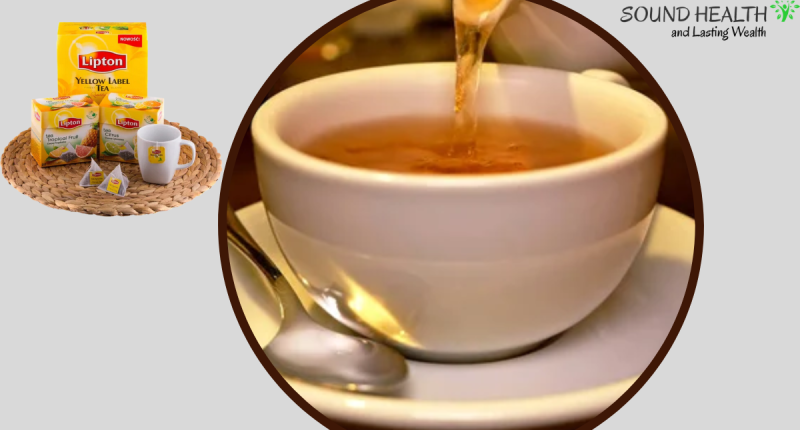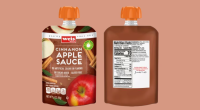Let’s discuss what happens to your body when you drink Lipton tea – Drinking Lipton tea can have a number of effects on your body, some of which are beneficial and some of which may not be.
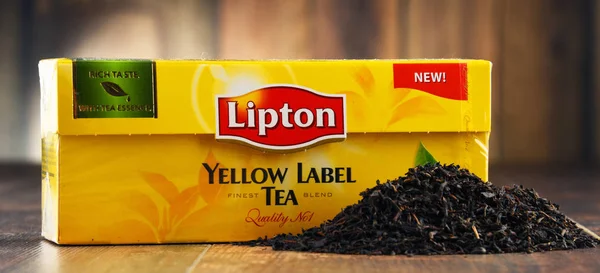
Nutritional value
| Nutrient | Amount per 8 fl oz (240 mL) |
|---|---|
| Calories | 0 |
| Fat | 0g |
| Saturated fat | 0g |
| Cholesterol | 0mg |
| Sodium | 5mg |
| Carbohydrates | 0g |
| Sugar | 0g |
| Protein | 0g |
| Caffeine | 40-60mg |
| Potassium | 25mg |
As you can see, Lipton tea is a very low-calorie beverage that is free of fat, cholesterol, and sugar. It is also a good source of potassium, an essential mineral that helps to regulate blood pressure and fluid balance.
Here is a breakdown of some of the most common effects:
Positive Effects
The following are some of the positive effects of drinking Lipton tea
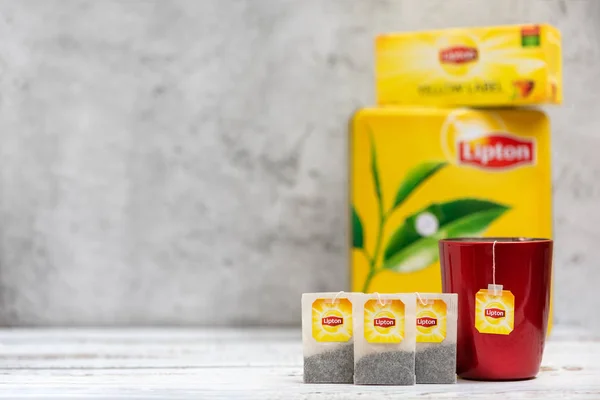
Hydration: The human body is made up of about 60% water, and it is important to stay hydrated to maintain optimal health. Drinking plenty of fluids can help to regulate body temperature, flush out toxins, and improve organ function. Lipton tea is a good source of fluids, and it can help to contribute to your daily fluid intake.
Mood and alertness: Caffeine is a stimulant that can improve mood, alertness, and energy levels. Lipton tea contains caffeine, but it also contains L-theanine, an amino acid that has calming effects. This combination of caffeine and L-theanine can provide a balanced boost of energy and focus.
Stress reduction: L-theanine has also been shown to reduce stress levels. L-theanine can increase levels of GABA, a neurotransmitter that has calming and relaxing effects. Drinking Lipton tea can help to reduce stress and promote relaxation.
Heart health: Flavonoids are antioxidants that can help to protect the heart from disease. Flavonoids can help to lower blood pressure, cholesterol levels, and the risk of blood clots. Lipton tea is a good source of flavonoids, and drinking Lipton tea can help to improve heart health.
Cancer prevention: Antioxidants can help to protect cells from damage caused by free radicals. Free radicals are unstable molecules that can damage DNA and increase the risk of cancer. Lipton tea is a good source of antioxidants, and drinking Lipton tea can help to reduce the risk of developing cancer.
Lipton tea is a good source of antioxidants. Antioxidants are compounds that can help to protect the body from damage caused by free radicals. Free radicals are unstable molecules that can damage cells and contribute to the development of chronic diseases such as cancer and heart disease. Lipton tea is a good source of antioxidants such as flavonoids and catechins.
Lipton tea may help to improve cognitive function. L-theanine, an amino acid found in Lipton tea, has been shown to improve cognitive function and focus. L-theanine may also help to reduce stress and anxiety.
Lipton tea may help to boost the immune system. Lipton tea contains catechins, which are antioxidants that have been shown to boost the immune system and help the body to fight off infection.
Lipton tea may help to promote weight loss. Lipton tea is a low-calorie beverage that may help to boost metabolism and promote weight loss.
It is important to note that more research is needed to confirm all of the potential health benefits of Lipton tea. However, the existing research suggests that Lipton tea can have a number of positive effects on the body.
Potential Negative Effects
The following are some of the negative effects of drinking Lipton tea:
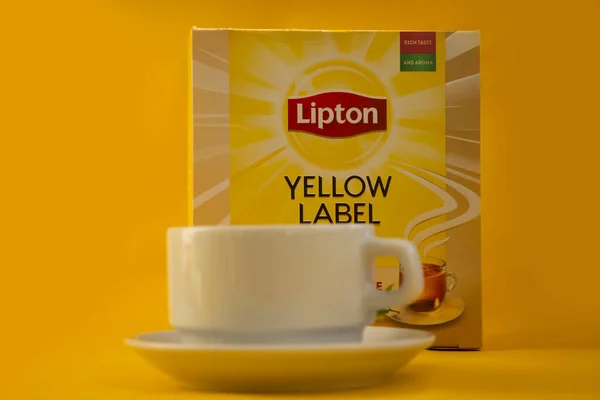
Anxiety and jitteriness: Caffeine is a stimulant that can cause anxiety and jitteriness in some people, especially in high doses. The amount of caffeine in Lipton tea varies depending on the type of tea and how it is brewed, but a typical cup of Lipton tea contains about 40-60 milligrams of caffeine. This is about half the amount of caffeine in a cup of coffee. However, if you are sensitive to caffeine, even a small amount can cause anxiety and jitteriness.
Insomnia: Caffeine can make it difficult to fall asleep by interfering with the production of melatonin, a hormone that helps to regulate sleep-wake cycles. If you have trouble sleeping, it is best to avoid drinking Lipton tea before bed.
Stomach upset: Lipton tea contains tannins, which are plant compounds that can irritate the stomach in some people. Tannins are also responsible for the bitter taste of tea. If you find that Lipton tea is too bitter for you, you may want to try a different type of tea or brew your tea for a shorter amount of time.
Iron deficiency: Tea contains tannins, which can bind to iron in the digestive tract and make it difficult for the body to absorb iron. If you are anemic, it is important to avoid drinking Lipton tea with meals.
Drug interactions: Lipton tea can interact with certain medications, such as blood thinners and antidepressants. If you are taking any medications, it is important to talk to your doctor before drinking Lipton tea.
It is important to note that the negative effects of Lipton tea are generally mild and occur in people who consume large amounts of tea or who are sensitive to caffeine. Most people can safely enjoy Lipton tea in moderation.
Best Ways to Enjoy Lipton Tea
There are many ways to enjoy Lipton tea. Here are a few ideas:
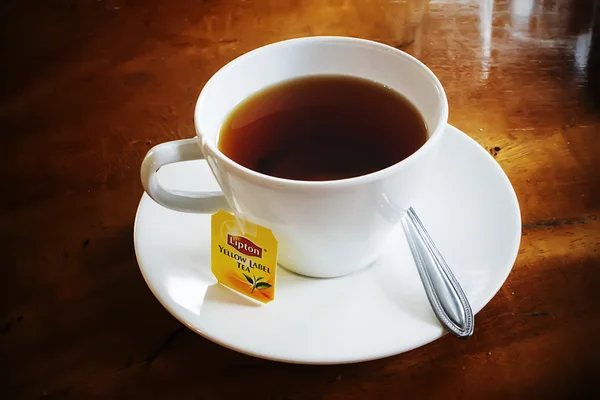
- Hot or iced: Lipton tea can be enjoyed hot or iced. To make hot Lipton tea, simply brew a teabag or loose-leaf tea in hot water for 3-5 minutes. To make iced Lipton tea, brew the tea as usual and then let it cool completely before adding ice.
- With or without milk and sugar: Lipton tea can be enjoyed with or without milk and sugar. Some people prefer to add milk and sugar to their tea to make it sweeter and creamier. Others enjoy the natural flavor of tea and prefer to drink it without any additions.
- On its own or with food: Lipton tea can be enjoyed on its own or with food. Lipton tea is a good accompaniment to many different types of food, including breakfast, lunch, dinner, and snacks.
- In recipes: Lipton tea can also be used in recipes. For example, you can use Lipton tea to make ice cream, cakes, cookies, and other desserts. You can also use Lipton tea to make marinades, sauces, and dressings.
Here are a few specific recipes for enjoying Lipton tea:
- Lipton iced tea: Brew a pitcher of Lipton tea as usual and then let it cool completely. Add ice to taste and serve with lemon wedges or slices of cucumber.
- Lipton chai tea: Brew a cup of Lipton tea with milk, sugar, and spices such as ginger, cinnamon, and cardamom.
- Lipton peach tea: Brew a cup of Lipton tea with peach slices and a dash of honey.
- Lipton mint tea: Brew a cup of Lipton tea with fresh mint leaves.
- Lipton lemon tea: Brew a cup of Lipton tea with lemon juice and a slice of lemon.
No matter how you choose to enjoy it, Lipton tea is a delicious and refreshing beverage.
FAQs
Here are some frequently asked questions about Lipton tea:
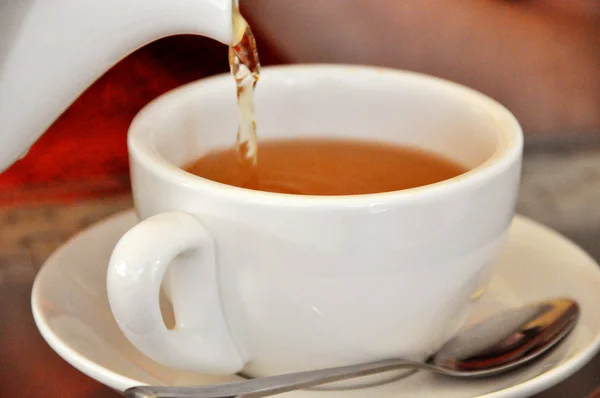
Q1: Is Lipton Tea Good For You?
Yes, Lipton tea is generally considered to be safe and healthy for most people to consume. It is a good source of antioxidants, which can help to protect the body from damage caused by free radicals. Lipton tea may also help to improve heart health, cognitive function, and the immune system.
Q2: How Much Lipton Tea Can I drink Per Day?
The amount of Lipton tea that you can safely drink per day depends on a number of factors, including your age, health, and caffeine sensitivity. Most adults can safely consume up to 400 milligrams of caffeine per day. A cup of Lipton tea typically contains about 40-60 milligrams of caffeine, so you can safely drink up to 7-10 cups of Lipton tea per day. However, it is important to start with a smaller amount and gradually increase your intake as tolerated.
Q3: Is Lipton Tea Good For Weight Loss?
Lipton tea is a low-calorie beverage that may help to boost metabolism and promote weight loss. However, it is important to note that Lipton tea alone is not a magic bullet for weight loss. It is important to combine Lipton tea with a healthy diet and exercise routine to achieve optimal results.
Q4: Is Lipton Tea Good For Diabetics?
Yes, Lipton tea is generally considered to be safe for diabetics to consume. It is a sugar-free beverage that does not contain any artificial sweeteners. Lipton tea may also help to improve blood sugar control and reduce the risk of complications from diabetes.
Q5: Is Lipton Tea Good For Pregnant Women?
Lipton tea is generally considered to be safe for pregnant women to consume in moderation. However, it is important to limit your caffeine intake to 200 milligrams per day or less during pregnancy. A cup of Lipton tea typically contains about 40-60 milligrams of caffeine, so pregnant women can safely drink up to 3-5 cups of Lipton tea per day. It is also important to talk to your doctor before drinking Lipton tea or any other type of tea during pregnancy.
Note: This article is written based on scientific evidence found by the soundhealthandlastingwealth.com team. Sources are duly referenced and hyperlinked to source websites and are clickable for confirmation.
